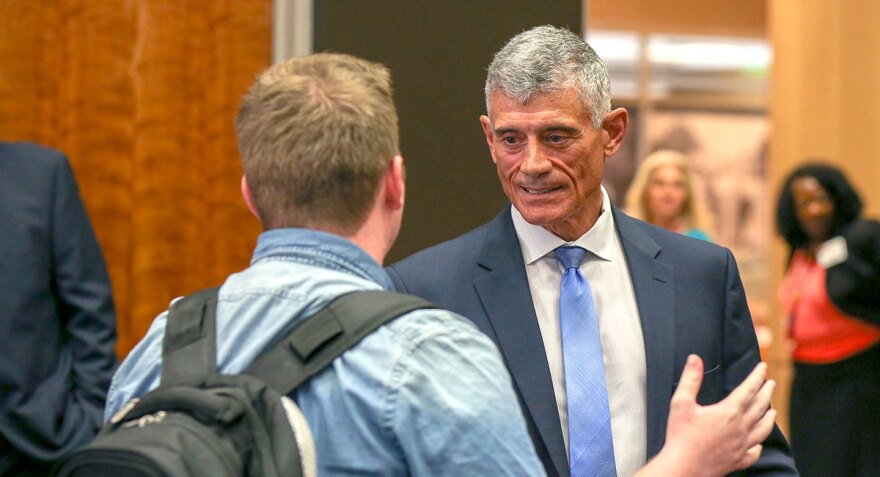Former University of South Carolina President Bob Caslen who resigned after less than two years in the wake of a plagiarism and misidentification controversy during a commencement speech called taking the job the biggest regret of his life in a newspaper interview.

As his problems grew in May, Caslen wrote in an email to a university vice president that he admired his perseverance staying at the university and in the state so long, according to emails obtained by the Post and Courier newspaper through a public records request.
“I can’t help but comment on this community and its hostility. By far the most hostile and destructive community I’ve ever been a part of. Not sure how anyone can stand being here," Caslen wrote.
The newspaper reviewed nearly 3,800 pages of Caslen's email and in an interview Thursday, the retired Army general who was superintendent of West Point and served nearly 43 years in the military told the paper he still felt that way nearly five months later.
“You have a good description of what I felt and what my wife felt,” Caslen said. “If I were a member of the South Carolina community, I would ask myself, ‘Why does a guy like him who’s been in all these different communities throughout his entire life, feel this way about our community?’
Trustees hired Caslen in July 2019 after a contentious search that initially saw him rejected with three other finalists and the board unanimously vote to reopen the president search, Critics said Caslen was inexperienced in running a large public university and knew nothing about the school.
Gov. Henry McMaster, an ex officio trustee, stepped in and asked board members to hire Caslen, even as the school's top two living donors asked for a ‘no’ vote because the process had become too political.
“The Democrats hate us. We took their castle,” McMaster's Chief of Staff Trey Walked texted to a trustee after they hired Caslen on an 11-8 vote.
Caslen's resignation came after a May 7 commencement speech where he used two paragraphs without attribution on being resilient from a Navy SEAL's speech.
In that same address, Caslen called the school “The University of California.”
Caslen blamed the misidentification on being tired and distracted after a long speech in the heat. He told the newspaper he took responsibility for the plagiarism because he is a man of integrity and what he says ultimately is his responsibility.
“I’m not going to throw my speechwriter under the bus, but, having said that, speechwriters’ normal responsibility is to ensure that whatever is said by the boss is legitimate," Caslen said.
As criticism grew after the speech, he wrote to then-South Carolina State University President James Clark, who was fired two months later by his trustees after five years on the job.
“This place sucks so bad,” Caslen wrote. “I don’t know how anyone can stand it. At some point you have to ask why do you put up with this stuff. It is insane. I don’t know how you can stand living here.”
Caslen offered his resignation several times after the speech and it was accepted five days later. When that happened, his emails showed he made plans to move two hours later.
“I want to get out of here as quickly as possible,” he wrote to a staffer.
Former University of South Carolina President Harris Pastides is leading the school temporarily during the search for a new president. Caslen said the next person offered the job should review his experiences carefully.
“Of course, they will say, ‘Well, you’re not a Bob Caslen and you’re the right fit and he was the wrong fit,’” Caslen told The Post and Courier. “My advice is make sure you come with your eyes open because I regret coming to the University of South Carolina.”



